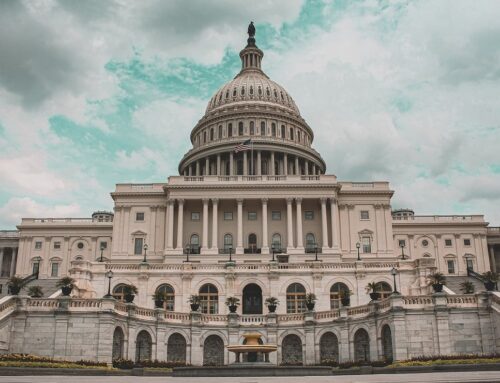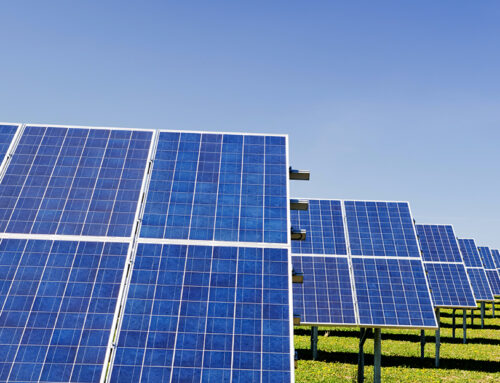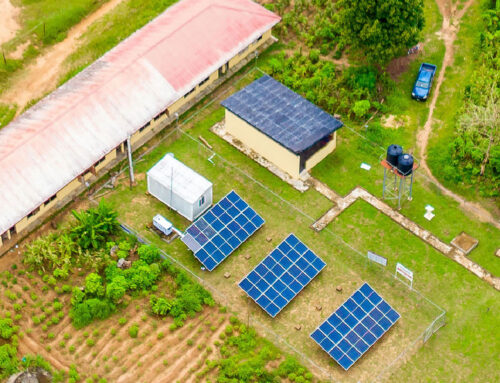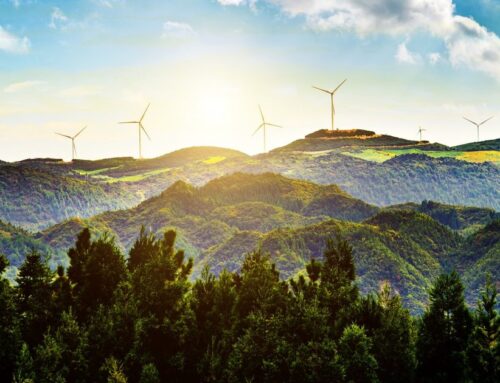Guide to Becoming an Environmental Leader and Inspiring the Next Generation of Eco-Defende
April 11, 2025
This adapted excerpt is from Every Wild Voice: For Environmental Leaders, Both Present and Future by Sam Davis (2024). It is published with permission from the author and was adapted and produced for the web by Earth | Food | Life, a project of the Independent Media Institute.
Your community needs leaders who care about the environment. As climate change, pollution, and loss of biodiversity threaten our planet’s health, we can’t afford to wait for governments or corporations to solve these problems. We need individuals who are willing to take action, inspire others, and make a difference. And those differences need to happen right in our backyards.
That’s why we need people like you. You know your community best, which means you can see right through the politics in community meetings and get to the heart of the issues.
Becoming an environmental leader is not easy. It requires knowledge, skills, values, and habits that go beyond recycling, using reusable bags, and turning off lights. It demands a deep understanding of the root causes of environmental issues, the ability to communicate convincingly and inspire action, the courage to challenge the status quo, and the resilience to overcome obstacles and failures.
However, you may understandably feel like you can’t make a significant impact on environmental issues if you don’t have enough time, resources, or expertise in the field. Despite these common challenges, pursuing environmental advocacy as a personal passion can provide you with a sense of purpose, fulfillment, and identity. It can also help you develop essential skills, such as leadership, communication, and resilience. Your actions may also inspire and influence others around you.
Leadership is not a fixed trait but a continuous learning process that can be fostered and shared. By cultivating specific skills, knowledge, and qualities, you can join the growing community of environmental leaders shaping the future of our planet.
Finding Your “Why”
Before getting started on your path to environmental leadership, it’s important to ask yourself the following questions: What motivates you to care about the environment? What drives you to take action, make sacrifices, and overcome obstacles for the sake of nature? What is your “why” for environmental advocacy?
Without a clear sense of purpose, it’s hard to sustain environmental advocacy in the long term. It’s easy to get discouraged by setbacks, overwhelmed by complexity, or distracted by other priorities.
Finding your “why” is not a one-time event. It’s a continuous process of self-discovery, reflection, and alignment. It requires you to challenge your assumptions, biases, and limiting beliefs while expanding your horizons and possibilities.
Understanding the Qualities of a Good and Equitable Environmental Leader
Some qualities that are often associated with successful environmental leadership include:
- Vision: Having a clear and inspiring vision of a sustainable and just future
- Courage: Being willing to take risks, face opposition, and speak truth to power
- Collaboration: Building partnerships and coalitions across sectors and disciplines
- Empathy: Understanding and respecting the perspectives and needs of diverse stakeholders
- Adaptability: Being flexible, agile, and able to learn from failures and feedback
- Ethics: Upholding ethical principles and values, such as honesty, transparency, and accountability
- Inclusivity: Promoting diversity, equity, and inclusion in decision-making and outcomes
By fostering these qualities, environmental leaders can become effective change agents and role models for future generations.
Finding Ways To Serve Your Community
Environmental leadership is not just about global issues or distant ecosystems. By engaging with our local communities, we can make tangible and meaningful impacts on environmental health, equity, and resilience. Here are some ways to promote environmental advocacy locally:
1. Volunteering
Volunteering is a great way to meet like-minded people, learn new skills, and contribute to positive change in your community. It can also expose you to diverse perspectives, strategies, and challenges.
Numerous environmental organizations and initiatives depend on volunteers to support their missions. You can volunteer for beach cleanups, tree plantings, habitat restoration, environmental education, or policy advocacy.
Here are a few more ideas for you to consider:
- Organize an Earth Day (April 22) or Arbor Day (last Friday in April) event in your community
- Conduct energy audits or weatherization projects for low-income households
- Serve as a water quality monitor for your local streams and rivers
- Help organize a plastic bag reduction campaign
- Work on public transit issues to improve accessibility and reduce carbon emissions
- Help organize a community recycling initiative
- Work with local schools to promote environmental education and sustainability
- Join or create a community-supported agriculture program
2. Activism
If you’re passionate about a particular environmental issue, you can join or create a local activist group. Activism can take many forms, including protests, rallies, petitions, letter-writing campaigns, or civil disobedience. Activism requires courage, persistence, and collaboration, but it can also generate attention, momentum, and impact on environmental policy and public opinion.
Here are some ideas on how to get started:
- Attend public hearings on environmental issues
- Contact companies about their environmental practices
- Participate in boycotts of businesses that have poor environmental records
- Start an environmental club at your school or workplace
- Host a film screening or educational event about environmental issues
- Write op-eds for local newspapers or online platforms
- Create and share educational videos or infographics on environmental issues
- Host educational booths at community events to raise awareness about the environment
3. Entrepreneurship
You can start your own environmental business or social enterprise if you have an innovative idea or solution for an environmental challenge. Entrepreneurship can provide unique opportunities for innovation, collaboration, and impact on environmental sustainability and social justice. It can also give you autonomy, creativity, and scalability in pursuing your environmental vision while producing jobs, wealth, and community benefits.
Here are some environmentally themed businesses to consider exploring:
- Eco-friendly cleaning service using non-toxic and sustainable products
- Sustainable fashion brand using environmentally friendly materials
- Rainwater harvesting system installation and maintenance services
- Zero-waste grocery store
- Green transportation companies using electric or hybrid vehicles
- Solar panel installation and maintenance services
- Reusable water bottle or food container brand
- Environmental research and development company
Considerations for Choosing the Right Activity
When choosing a service that fits your skills and interests, it’s important to consider factors such as your availability, resources, and goals. You can assess your strengths and weaknesses, your network and affiliations, your learning and growth opportunities, and your potential impact and outcomes. You may also seek advice or feedback from others who have experience in the field.
Remarkable Environmental Leaders
Here are some individuals who have made a powerful impact on the planet and are sure to inspire future generations of eco-defenders:
- Wangari Maathai founded the Green Belt Movement in Kenya and planted over 50 million trees to empower women, restore degraded land, and promote democracy.
- Greta Thunberg initiated the school strike for the climate movement and inspired millions of young people to demand urgent action from politicians and businesses on climate change.
- Bill McKibben co-founded 350.org and launched the fossil fuel divestment campaign to challenge the power and influence of the fossil fuel industry and accelerate the transition to renewable energy.
- Vandana Shiva founded Navdanya and promotes agroecological farming and seed-saving to preserve biodiversity, food sovereignty, and cultural heritage.
You, too, may already be seen as an environmental leader in your day-to-day activities. When we become proactive environmental leaders, we make a positive and lasting impact on the environment and society. We can inspire and mobilize others to join us and create a more sustainable and just world for all.
Search
RECENT PRESS RELEASES
Related Post




